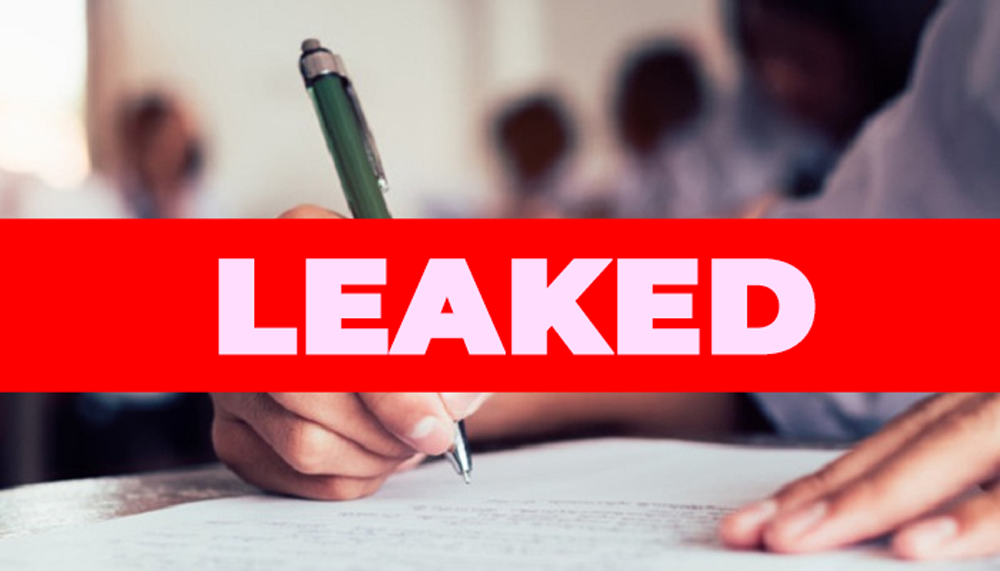The analysis of the consolidated judgment of four fundamental rights applications filed under Article 126 read with Article 17 of the Constitution of Sri Lanka. These cases address the alleged breach of integrity in the Grade 5 Scholarship Examination held on September 15, 2024, due to leaked questions. The petitioners argue that this breach infringed their fundamental right to equality under Article 12(1) of the Constitution and seek judicial remedies to restore fairness and accountability in the examination process. SC / FR Applications Nos. 286, 287, 291, & 294 of 2024
Background of the Case
The Grade 5 Scholarship Examination is a pivotal assessment conducted annually by the Department of Examinations. It provides underprivileged students an opportunity to gain scholarships and admission to premier public schools. In 2024, 323,879 candidates participated, vying for access to better educational opportunities. Allegations emerged that a portion of the examination questions had been leaked prior to the test, leading to an unfair advantage for some students. The petitioners filed four separate applications, later consolidated, to address the issue.
Key Allegations
The petitioners alleged:
- Leak of Examination Questions: Specific questions from Paper I of the Grade 5 Scholarship Examination were shared through WhatsApp and other social media platforms before the test date.
- Inequality Among Candidates: Students who received the leaked questions were unfairly advantaged, violating the principle of equality.
- Flawed Remedial Actions: The Department of Examinations awarded “free marks” for three identified leaked questions but failed to address broader systemic issues or penalize the beneficiaries of the leaks.
Respondents
The applications named several respondents, including:
- Officials from the Department of Examinations responsible for question preparation and administration.
- The Prime Minister and Minister of Education, overseeing the examination process.
- The Criminal Investigation Department (CID), tasked with investigating the leaks.
- The Attorney General, representing the state.
Judicial Observations
- Confirmation of the Leak:
- The court validated the petitioners’ claim that three questions from the examination were leaked. These matched questions 5, 13, and 27 of Paper I.
- Further allegations concerning additional leaked questions were not substantiated.
- Breach of Integrity:
- The court emphasized the critical importance of maintaining the integrity of public examinations, particularly for underprivileged candidates relying on merit for upward mobility.
- State’s Response:
- The Department of Examinations’ decision to award free marks for the leaked questions was intended to neutralize the advantage gained by recipients of the leaked paper.
- Committees appointed by the Prime Minister and the Ministry of Education reviewed options but recommended against re-administering the examination.
Legal Issues
The primary legal issue revolved around whether the compromised examination violated Article 12(1) of the Constitution, which guarantees equality before the law. Additional concerns included:
- Breach of confidentiality mandated under the Public Examinations Act.
- Failure of state mechanisms to prevent and adequately address the leak.
- Violation of legitimate expectations of students and parents for a fair assessment.
Findings
- Source of the Leak:
- Investigations revealed that the 13th respondent, a member of the question paper preparation panel, shared questions with a tuition master, who further disseminated them.
- The CID’s investigation led to arrests and identified WhatsApp groups as the primary medium for the leak.
- Impact of the Leak:
- Students who accessed the leaked questions gained an unfair advantage, undermining the merit-based selection process.
- The court recognized the disproportionate impact on students from disadvantaged backgrounds.
- Remedial Measures:
- The award of free marks was deemed insufficient to restore fairness. However, re-administration of the examination was considered impractical given logistical and psychological factors.
Court’s Judgment
The court held that:
- The breach of examination integrity constituted a violation of Article 12(1).
- The Department of Examinations and the Ministry of Education failed to uphold their duty to ensure a fair process.
- While the awarded free marks mitigated some harm, systemic reforms were necessary to prevent future breaches.
Recommendations
- Strengthening Security:
- Implement advanced encryption and tracking systems for examination materials.
- Conduct regular audits of examination protocols.
- Accountability:
- Impose stricter penalties for individuals involved in breaches, including lifetime bans from examination-related activities.
- Establish an independent oversight body to investigate breaches.
- Remedial Framework:
- Develop alternative remedial measures, such as re-weighting unaffected questions, in case of future breaches.
- Introduce mechanisms for faster identification and response to leaks.
- Long-term Reforms:
- Review the Grade 5 Scholarship Examination’s structure to reduce its high-stakes nature.
- Invest in equitable educational resources across schools to diminish dependency on this examination for mobility.
Conclusion
The Grade 5 Scholarship Examination leak exposed critical vulnerabilities in the administration of public examinations. While the court acknowledged the state’s efforts to address the breach, it underscored the need for systemic reforms to uphold integrity and equality. This case serves as a pivotal moment to prioritize fair access to education and reinforce public trust in the examination system.
Read Full Judgment














